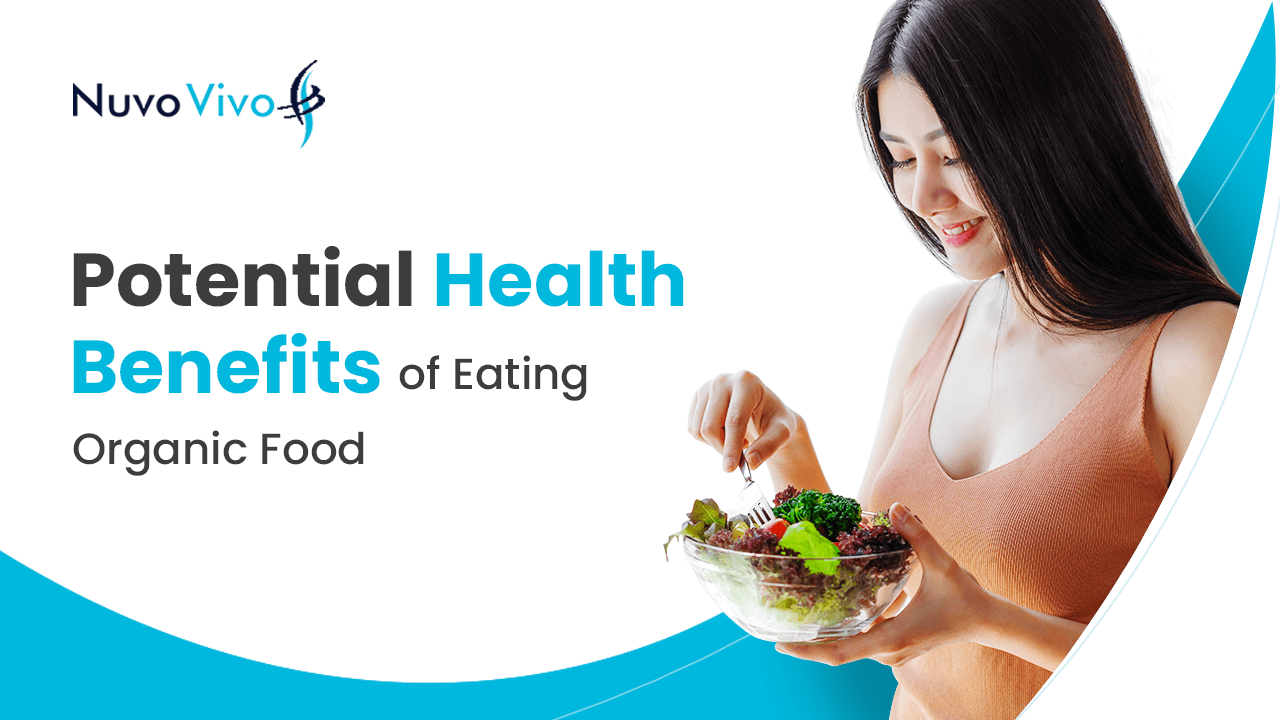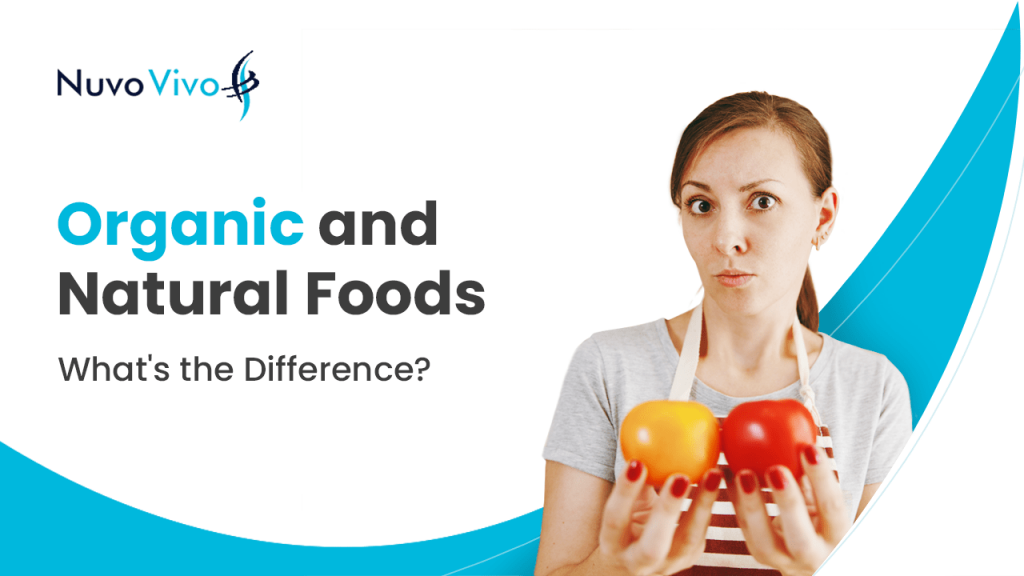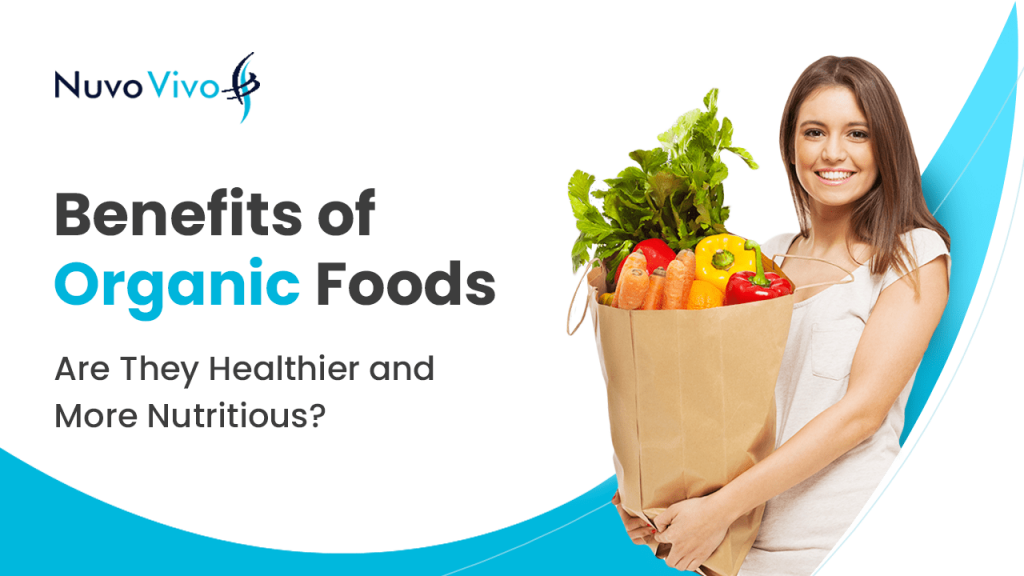You might be wondering why the term “organic” is relatively new and is, like clickbait, prevalent in every supermarket or grocery shop you visit. The term “organic” has revolutionized grocery stores, fruits, vegetables, and basically all edibles.
Whenever it comes to edibles, most of us are worried about our health and take care of the food items we buy. Thus, the word “organic” has gained enough importance these days, and people are resorting to organic foods for a sound and healthy lifestyle.
If you’re someone who’s searching for the benefits of organic foods, this article will make everything crystal clear for you. But before launching into the health benefits of organic foods, we should understand what the word “organic” means and what the term “organic food” denotes.
What is organic?
According to online sources, the word “organic” refers to “an organic compound” or “any substance containing carbon-based compounds, especially produced by or derived from living organisms.” The word “organic” can have a variety of meanings depending on the context in which it is used.
For example, when it comes to organic goods, the term “organic” has a totally different connotation than when it comes to company growth or organic fashion. Let’s look at some of the most prevalent definitions of the term “organic” associated with the benefits of organic foods.
What is organic food?
Organic foods are those grown without the use of synthetic pesticides, fertilizers, or other genetically engineered ingredients. Animal products such as milk, meat, cheese, and honey that are produced without the use of growth hormones or antibiotics are also included in the category of organic foods.
ALSO READ: Can Diabetes Patients Eat Honey?
What is organic farming and how does it work?
Organic farming is a management and agricultural production system that incorporates a high degree of biodiversity with environmental measures that protect natural resources and has strict animal welfare requirements.
Farmers’ techniques for cultivating and preparing agricultural items such as fruits, vegetables, grains, dairy, and meat are referred to as “organic.” Organic agriculture activities are expected to achieve the following objectives:
- Improve the quality of the soil and water.
- Allow natural cattle behavior to flourish.
- Encourage a farm’s resource cycle to be self-sustaining.
- This will reduce pollutants and provide a safe and healthy environment for cattle.
Organic foods are safer and simpler to eat than commercially grown, genetically modified fruits and vegetables; you will notice that they are ideal for you. Organic foods may be a little more difficult to come by or a little more expensive than ordinary products, but they are well worth for an organic food diet! The benefits of eating healthy organic food are as follows:
ALSO READ: Health Benefits of Drinking Turmeric Milk
What are the potential health benefits of eating organic food?

- Nutrient-rich: Studies have revealed that organic foods are more nutrient-dense and offer a wider range of health benefits. Some flavonoids, particularly those with antioxidant characteristics, have seen a notable uptick in concentrations in recent years.
- Antioxidant-dense: If you’re seeking for a detox, there’s no need to look any further! The solution to all of your issues is organic, wholesome food! Foods grown without the use of insecticides, as is the case with organic food products, are higher in antioxidants and so perform better than those grown with insecticides. People who eat healthily are more likely to have a healthy lifestyle overall.
- Omega-3 fatty acids: For example, the substantial use of grass and rye for cattle’s nutrition results in higher quantities of omega-3 fatty acids, which are significantly more heart-healthy than other types of fats. Organic meats, dairy, and eggs contain higher levels of omega-3 fatty acids.
- Tastier food: Organic produce tastes better since it’s grown without the use of pesticides, herbicides, or fertilizers. Food cultivated without pesticides or preservatives will taste better. Organically grown foods tend to be more flavorful since they are grown on soil that is well-fed and well-balanced. In comparison to commercially manufactured meals that have been chemically treated, organic foods have more minerals, vitamins, and other critical ingredients in them. Food grown close to where it will be consumed is fresher and better tasting than food that has been processed, imported, and transported.
- Metal toxicity: Cadmium, a naturally occurring metal toxin, is absorbed by plants and is hazardous to humans. Organic grains exhibited significantly lower cadmium levels than conventionally grown crops, but not fruits and vegetables. It’s possible that organic wheat has lower cadmium levels since synthetic fertilizers are banned in organic production.
- Feeling full: Organically processed food is more nutritious than conventionally processed food, which is why it’s better for you. Processed foods, on the other hand, can lead to unhealthy eating habits, eventually leading to digestive problems. Organic food is a better option for your diet because you can eat a lot of it, which is healthier than processed foods.
- Lesser pesticides: For example, organically grown crops contain fewer pesticides than their conventionally grown counterparts. However, some pesticides that are permitted for organic farming or airborne pesticides from conventional farms may contaminate organic food. As a result of the safety guidelines for maximum residual levels set on traditional foods, it is difficult to determine their health impacts. However, organic foods use fewer synthetic pesticides, which makes them a safer option.
- Free of GMOs: Organic foods are free of GMOs, making them the sole option to ensure that we are not ingesting potentially dangerous items.
- Bacteria: Bacteria resistant to antibiotic treatment may be more common in traditionally produced meats. Organic foods have the same overall risk of bacterial contamination as conventional foods.
Nutritional benefits of organic foods
The nutritional benefits of organic foods backed by scientific evidence make it a better option for you. The benefits of organic foods are:
- More healthy fats
- No antibiotics
- No synthetic hormones
- Presence of antioxidants, in certain cases
Organic foods vs conventional foods
Fertilizers, growth hormones, livestock feeds, insecticides, preservatives, and genetically altered genes are not used in the production of organic foods (GMOs). Organic farming is controlled by a variety of standards that differ from nation to country. Organic farming is centered on the concept of raising food without synthetic additives or genetically modified crops.
Farmers in traditional farming use chemical fertilizers to boost plant growth. Pesticides and chemical herbicides are used in the production of conventional foods. Traditional farmers use antibiotics and growth hormones in order to increase the development and well-being of their livestock.
Understanding GMOs and genetically modified foods
GMOs are creatures (plants, animals, or microbes) whose genetic material (DNA) has been changed in a way that does not occur normally through mating and/or natural recombination.
“Modern biotechnology” or “gene technology” are common terms for the technique, which is also known as “recombinant DNA technology” or “genetic engineering.” It enables the transfer of specific genes from one creature to another, as well as between unrelated species. GM foods are foods that are made with or from genetically modified organisms.
ALSO READ: Top Weight Loss Myths Debunked
Organic vs natural foods: what’s the difference?

Organic foods are developed or raised without the use of synthetic chemicals or artificial growth hormones, as previously stated. Natural foods are those that have not been chemically changed and do not include hormones, antibiotics, or artificial tastes.
The FDA, on the other hand, claims that no definition for the phrase has been produced.
As a result, the term “natural” can be used to describe virtually any food, organic or non-organic. This implies that unless the label clearly states otherwise, something branded “natural” isn’t always devoid of additives or organic.
ALSO READ: Benefits and Side Effects of Drinking Jeera Water
How can you determine whether the food you’re buying organic?
An organic certification scheme has been established by the United States Department of Agriculture (USDA). This implies that every farmer or food producer who sells organic food must adhere to stringent regulatory regulations.
It’s critical to check for the USDA organic mark if you decide to become organic.
Also, keep an eye out for the following phrases on food labels to identify food that has been farmed organically:
- Natural at its finest. This product contains only organic components.
- Organic. This product is made up of at least 95% organic ingredients.
- Organic ingredients are used in this recipe. Organic components account for at least 70% of the total.
A product cannot be branded organic or utilize the USDA mark if it contains fewer than 70% organic components. In Europe, Canada, and Australia, similar norms are implemented.
To assist customers in identifying organic products, each country or continent has its own seal. In India, APEDA certifies organic products based on their set criteria.
Does “organic” mean “pesticide free?”
Contrary to popular belief, “organic” does not always imply “pesticide-free” or “chemical-free” food. If pesticides are employed, they must be sourced from natural sources rather than synthetically created.
Is organic food safer and more nutritious?
Organic foods may contain more antioxidants and nutrients than conventionally farmed foods, although the data is conflicting. Artificial chemicals, additional hormones, and antibiotic-resistant bacteria can all be reduced by eating organic food.
However, it may be more expensive and not available to everyone. Furthermore, it’s unclear whether going organic provides any extra health benefits. Whether or not to buy organic should be dependent on your particular interests.
ALSO READ: HDL vs LDL Cholesterol
Is organic food better for you? Is it healthier?
Organic eating may have advantages, but it may also have costs that prevent some families from doing so. It is also nearly impossible for the end consumer to check or confirm if the food they are buying is indeed organic, as claimed by the seller! This makes it easy to make fraudulent claims and sell food in the garb of “organic.”
One should also not get too carried away by the “Chemical” vs. “Organic” differentiation. “Chemical” is a term that is loosely and vaguely associated with anything that is hazardous to health. That said, anything that has atoms and molecules is nothing but a chemical structure; even water is made up of two hydrogen atoms and an oxygen atom, i.e., H2O!
Furthermore, it is important to note that not everything organic is healthy for our bodies. Even poison can be made in an organic fashion—i.e., plant-derived, authentic, and organic! In most cases, organically produced food items are safe and have better nutritional value.
However, the definition of healthy eating extends far beyond simply eating organic food. The total calorie consumption, the composition of calories (protein, fat, and carbs), the micronutrients profile (vitamins & minerals), antioxidant content, etc. of the entire menu is what decides if the food we consume is indeed healthy or not. Even the most organic and healthy foods can cause high cholesterol, obesity, and fatty liver if consumed in excess!
Before purchasing organic foods, customers must consider dietary balance. Fruit and vegetable consumption, as well as starchy carbohydrate items, should be encouraged. You can integrate some organic foods along the way once you’ve established that you’ve consumed the proper diet for your daily intake.
Making the appropriate decisions to live a healthy lifestyle may be challenging, however. With organic food on the line, a quick assessment of the benefits and drawbacks of organic food may help you make a more informed decision.
Now, as the truth about the benefits of organic foods is clear, it’s you who have to decide whether to eat organic or not!
Frequently Asked Questions
Organic goods protect farmworkers, their families, and customers from hazardous and long-lasting chemicals found on the field and in foods, as well as in the land they work and play on, the air they inhale, and the freshwater they consume.
Organic farming does not just assist in reducing public health hazards; research also reveals that organically cultivated crops are higher in nutrients like magnesium, vitamin C, and iron, and have lower levels of pesticides and nitrates. This scientific evidence makes it a better and safer choice than conventional foods.
Pesticide residue levels are lower in organically grown fruit than in conventionally farmed products. However, this is not true in all situations because pesticides allowed for organic farming or airborne pesticides may contaminate organic foods.
Organic foods may have a fatty acid composition that is beneficial.


This Post Has One Comment
This article posted at this web page is actually good.